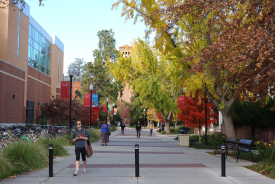Bill and Melinda Gates Foundation Help Fight the Zika Virus Through Science Breakthrough Study
ByScientists aim to free millions of Zika bacteria-infected mosquitoes in Brazil and Colombia. This bacteria decreases the mosquitoes' ability to spread viruses.
The bacteria named Wolbachia will be injected to the mosquitoes, that is responsible for removing their capacity to pass on viruses to humans.
This $18 million plan will be funded by the Bill and Melinda Gates Foundation and the Wellcome Trust. This is done in cooperation with the governments of the United States, United Kingdom, and Brazilian governments along with the World Health Organization, as reported by The Guardian.
Sixty percent of insect species around the world has Wolbachia in their system. However, this is not existent in Aedes aegypti mosquitoes that bring Zika, chikungunya, and dengue viruses that affect humans.
Scientists with the Eliminate Dengue Program have created a method of transferring bacteria to Aedes mosquitoes. Various trials in small scale level have been done in Brazil, Colombia, Indonesia, Vietnam, and Australia that have demonstrated the mosquitoes infected with Wolbachia have stopped the spread of dengue.
Researchers were catapulted by the rapid spread of Zika and obtained funding to plan large-scale experiments in cities of Colombia and Brazil. This also includes Rio de Janiero, which is according to a press release from Wellcome Trust. This project will be self-sustaining as the mosquitoes infected with Wolbachia are presumed to breed with local mosquitoes and pass the bacteria on to their offspring.
Dr. Trevor Mundel, president of the global health division of the Bill and Melinda Gates Foundation, reiterates that Wolbachia has a great potential in protecting against disease brought and carried about by mosquitoes. Its (Wolbachia) affordability, sustainability, and appearance in providing protection against dengue, Zika, and other viruses makes it a great topic for study and has made researchers desire to study its influence and how it can help nations.
© 2025 University Herald, All rights reserved. Do not reproduce without permission.








